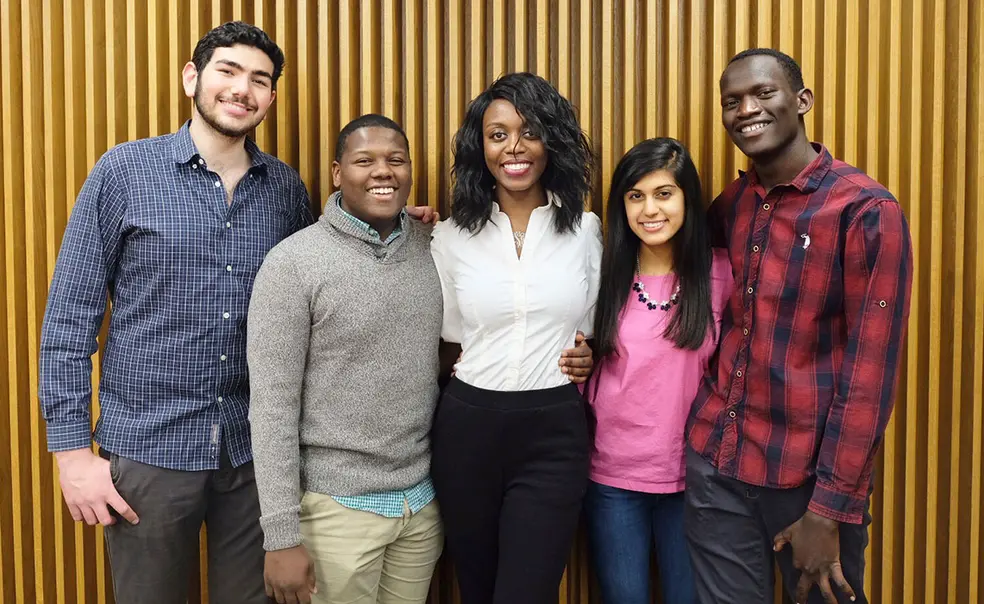WellPower Entrepreneurs Use Repurposed Batteries for Water Filtration
In Bethwel Kiplimo ’21’s home village in the Nakuru County of Kenya, NGOs have again and again introduced projects aimed at improving access to clean water. But most products stop working after two years, and there aren’t funds to repair them. Kiplimo was determined to come up with a different model. In October 2018, he joined WellPower — a Princeton-born startup providing a sustainable solution to the lack of access to electricity and clean water.
Alumna Victoria Scott ’18 and four current Princeton students now operate the company. The idea was born in December 2017 during a competition on campus in which students were asked to promote an entrepreneur idea as it related to energy. The WellPower co-founders knew the alarming amount of solar panels and electric-vehicle batteries being discarded in the U.S., and they saw this as a challenge and an opportunity to create a new project using these affordable, upcycled materials. The team won the Hult Prize, an international award for sustainability startups.
WellPower uses repurposed battery packs from electric cars to power a water filtration system that generates clean water and electricity. The system can be fitted to any existing water source. The first system that the team installed pumps water from a river bank into an elevated tank. The water then runs through two filters, one designed to collect sediment and a second to gather viruses and bacteria. The clean water is held in a larger tank before distribution.
In December 2018, the startup team traveled to Kenya to install a prototype of the water pump and meet local entrepreneurs looking to use the system to sell energy and clean water in their communities. One of the systems was implemented where Kiplimo attended high school. “It represents almost Princeton’s unofficial motto, ‘In the nation’s service and the service of humanity,’” co-founder and head of operations Ayushi Sinha ’20 said. She points to the entrepreneurship ecosystem on campus as an influential piece of WellPower’s progress. The Keller Center, the Adlinger Center for Energy and the Environment, the Princeton Entrepreneurship Council, and the Princeton Environmental Institute have all supported the startup. Sinha met Scott, a co-founder and the head of marketing, during a summer in the Princeton Start-Up Immersion Program (PSIP), funded by Princeton alumni.
“As an engineer at Princeton, we learn a lot about the theory — what should happen, how it’s supposed to work,” said co-founder and head of business development Noah Schochet ’21. “But this project allowed me to actually apply that.” The team plans to return to Kenya in the summer; during their last trip, 15 people requested systems for their own areas. The co-founders are looking for investors and working on decreasing the system’s cost.
Water is just a starting point for WellPower. Eventually, the team wants to expand its operations to tackle agricultural processing or ice making, which are “productive uses” that lead to directly increased income for people in these regions. “Beyond solving the problem of clean water access is economic development in this region,” said Todd Baldwin ’20, co-founder and chief engineer. “We are interested in using solar for productive uses in Africa — anything that leads to directly increased welfare or income. Our overall mission is that we empower local entrepreneurs in Kenya to provide clean water and electricity to their communities at an affordable rate.”










No responses yet